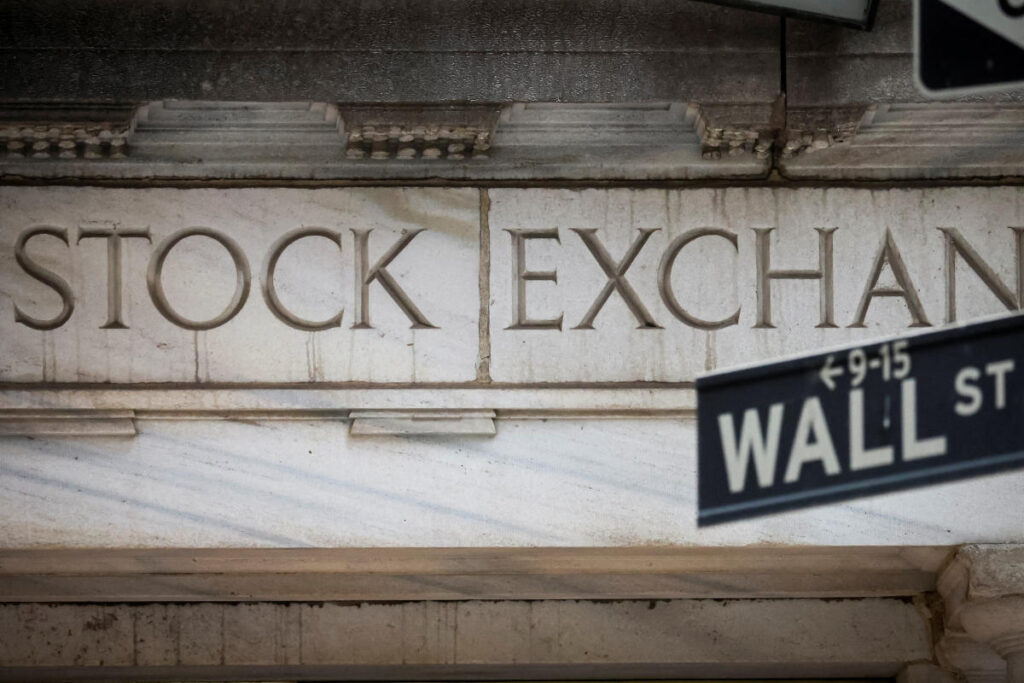Stock investors have been fixated on bonds throughout 2023. That’s not changing anytime soon.
The 10-year Treasury yield (^TNX) surged more than 150 basis points between the start of April and late October before it started declining this month. A spike in yields typically leads to a drop in stocks, and that has made bonds arguably the biggest market story throughout the fall.
In early October, eToro US investment analyst Callie Cox described the sell-off in the bond market as the “biggest pain trade for all types of investors.” The results of US Treasury auctions are even considered by some traders to now be more important to the market than monthly job reports.
Even as a retreat in yields has helped propel stocks higher in recent weeks, Charles Schwab chief fixed income strategist Kathy Jones doesn’t see volatility leaving the bond market anytime soon.
“[High bond yields] has been the story over the past six months or so and that’s going to continue be the story into 2024,” Jones told Yahoo Finance Live on Monday.
Notably some on the Street, like Bank of America rate strategist Mark Cabana, see the 10-year Treasury Yield only moving down about 10 basis points, to 4.25%, by the end of 2024.
“The US will need to pay a premium to attract inflows [from international entities] through a combination of a weaker US dollar and higher rates,” Cabana wrote.
A ‘source of volatility’
As stocks struggled in October, Wall Street strategists repeatedly noted that stocks were unlikely to rally until yields stopped pressing higher. Investors found some relief after the Federal Reserve’s November policy meeting. Yields fell from 16-year highs as the market largely read comments from Fed Chair Jerome Powell to mean the central bank was done hiking interest rates.
As of Tuesday, markets were pricing in an 89% chance the Fed holds rates steady through the January meeting, up from a 70% chance a month ago, per the CME FedWatch Tool.
Now, the debate has shifted to when the Fed will start cutting rates.
“In a normal cycle you would expect the Fed to start easing sooner rather than later,” Jones said. “In this cycle, because inflation has surprised on the upside, the Fed seems more cautious…Trying to figure out the Fed’s reaction function is going to be the source of volatility as we go into next year.”
Notably, economists at big banks disagree on when exactly the Fed will begin lowering interest rates. Goldman Sachs sees just a 15% chance of a recession next year and sees a 55% chance the Fed follows a “higher-for-longer” interest rate path that factors in either no rate cuts through the end of next year or a phase of “gradual cuts” starting in the back half of the year.
Morgan Stanley sees the cutting cycle beginning in June 2024. Meanwhile, UBS sees rate cuts starting as soon as March as it projects the US economy will sink into recession next year, prompting the Fed to loosen policy.
This debate over when the Fed will cut rates will likely drive yields since history tells us Treasury yields have tracked moves in the Fed funds rate.
And if the Fed holds rates steady for most of 2024 and yields also stay high, that could be trouble for stocks, according to RBC Capital Markets head of US equity strategy Lori Calvasina.
Calvasina’s report suggests stocks are likely to remain sensitive to yields in the year ahead. In Calvasina’s model, if the 10-year Treasury yield falls from about 4.4% to 3.74% by the end of 2024, the S&P 500 will rise about 10% next year. But if the 10-year Treasury yield were to instead increase to 5% in that period, she projects that the S&P 500 would fall by about 4%.
Josh Schafer is a reporter for Yahoo Finance.
Click here for the latest stock market news and in-depth analysis, including events that move stocks
Read the latest financial and business news from Yahoo Finance
Read the full article here

